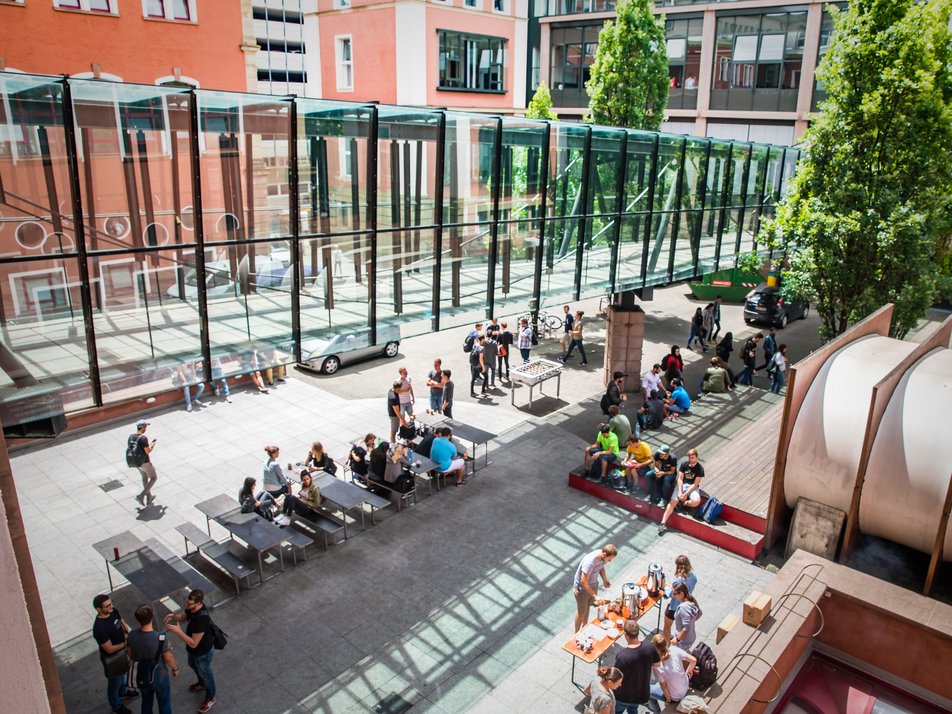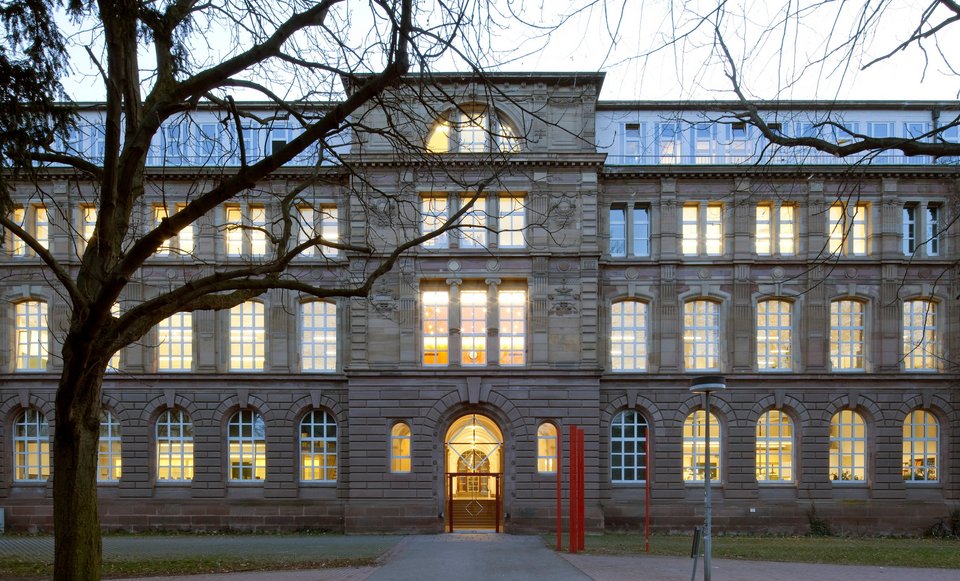We are working on the future. Climate-literate, resilient, connected.
36 Bachelor's and Master's degree programs. 125 professors, 390 lecturers, about 100 researchers. At Stuttgart University of Applied Sciences, we all work on the future every day.
Climate expertise, resilience and networking form the basis for making the world of today and tomorrow a better place with qualified solutions. We connect faculties, research and partners on an interdisciplinary basis. We offer opportunities to think even more broadly and educate yourself even more comprehensively. Practical relevance and small learning and semester units guarantee students their own personal development. This leads to a degree that, like their studies, is geared towards the future and is in high demand from companies.
Being climate-literate means meeting the challenges of climate change with solutions in line with the UN Sustainable Development Goals. For more resource conservation that still allows for a progressive way of life.
Resilient means creating resilient living spaces together. With intelligent solutions that provide the best possible protection for environments and infrastructure against the consequences of external crises. Whether they come from climate change or are deliberately caused by cyber attacks, for example. It is also important to us to empower students. So that they can organize their studies and their lives well.
We connect students, lecturers and researchers. Projects repeatedly reach across faculties and degree programs, and current research is integrated into our future-oriented degree programs. Together with partners, we are driving digitalization and AI forward. For a future that connects.
Studying at a University for Applied Sciences
From a Politechnicum to a University of Applied Sciences
In Baden-Württemberg, located in the south-west of Germany, you'll find 25 Universities of Applied Sciences. Around one third of all students in Baden-Württemberg are enrolled at Universities of Applied Sciences.the (in German: Hochschule für Angewandte Wissenschaften - HAW).
Practice-oriented teaching and applied research
Universities of Applied Sciences are successful due to their clear profile of translating scientific results into practice-oriented teaching and applied research. The range of subjects is oriented towards the labour market and is constantly being expanded. The central profile element is its strong practical relevance. Through an integrated practical semester, project work, laboratory events and excursions, students gain valuable insights into practical working methods. Professors generally have several years of professional experience outside the university sector and thus combine professional success with scientific reputation. Thus Universities of Applied Sciences offer high-quality, vocational training that is in demand in companies and public institutions.
Personal contacts to professors
The students are the focus of attention. Innovative teaching methods and courses enable intensive learning and sustainable knowledge transfer. Courses take place in manageable groups with seminar character. Personal contacts to professors and individual advice create a suitable environment for successful and efficient studies. All study programmes are accredited by recognised agencies. The quality of the courses of study is continuously reviewed and developed. Modern technical equipment at the universities offers students an optimal environment for studying, teaching and learning. A broad scientific qualification and professional skills complement each other in an optimal way during the course of studies. The unity of teaching and research has been achieved through numerous application-oriented research projects in the institutes for applied research. In addition, all universities cooperate closely with companies, institutions and organisations. This can be done through practical projects with students, excursions or scientific cooperation.
Young talent in demand for the economy
Equipped with the necessary theoretical foundations and the knowledge to implement them in their professional field, graduates are in great demand as young professionals for the economy - nationally and internationally. More than any other type of higher education institution, Universities of Apllied Sciences primarily trains in engineering subjects. They thus make a central contribution to the training of highly sought-after, qualified specialists in all areas.
![[Image: HFT]](/fileadmin/Dateien/Hochschule/_processed_/5/3/csm_240402_Leitbild_645e529b16.jpg)


